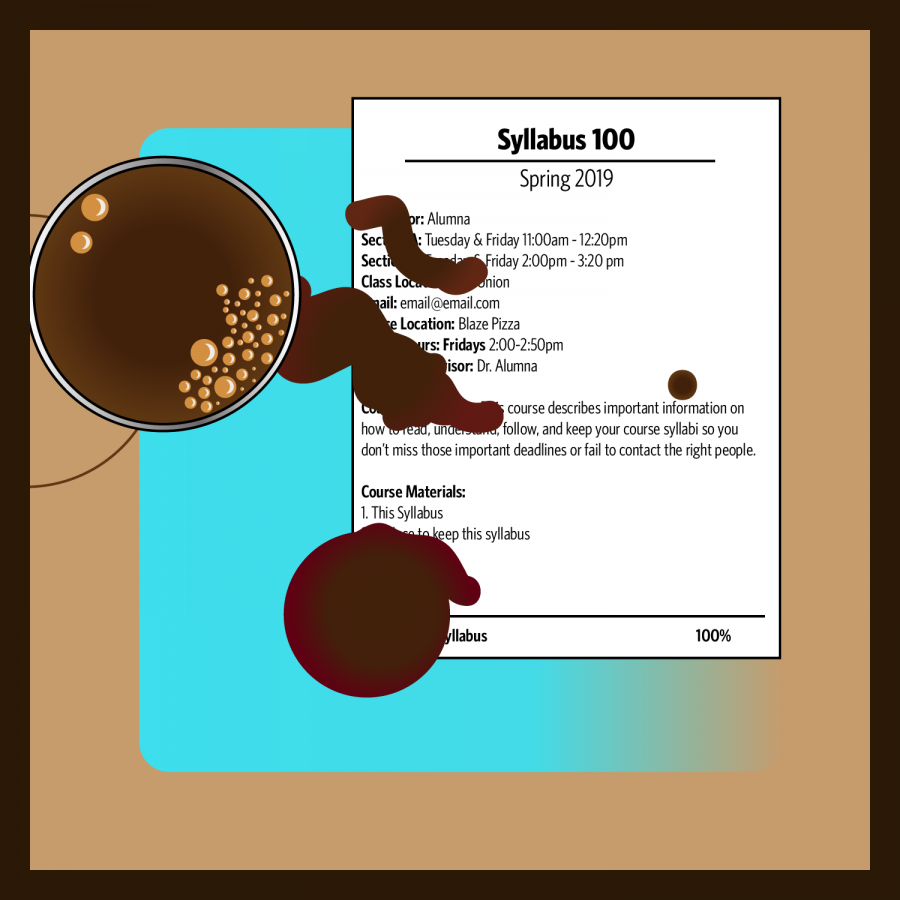Start the semester strong by reading syllabi thoroughly
Jan 18, 2019
Every semester, the aptly dubbed “syllabus week” provides students with a nice, simple transition from break to the essays, classes and coursework accompanying each term. It gives us time to catch up with friends and readjust to life back on campus.
This first week often sees light, if any, homework, the main focus being introductions and purchasing necessary materials and textbooks. As a result, it also often also sees heavy partying and crazy antics as students reunite. In the midst of the binge drinking and beer pong, the soft warnings of professors for students to “read the syllabus” usually go ignored, easily forgotten like the last sip of Natty Light at the bottom of a red solo cup.
Students do themselves a major disservice by not devoting at least some attention to course syllabi.
Reading the syllabus remains one of the most important tasks in any college class. Without giving the syllabus a thorough read-through, how is a student supposed to fully understand the course objectives? How is a student supposed to know what to learn?
A clear picture of the topics and ideas that will be discussed in the class is essential to the educational process. With the course goals in mind, one can more effectively retain pertinent information.
Get The Daily Illini in your inbox!
Knowing the course objectives also comes in handy when ICES forms roll around. Students can become greater judges of their professors’ ability to teach the course material, and provide relevant feedback on course readings and assignments. This not only makes students into more efficient learners but also allows instructors to make alterations in order to improve the course for future pupils.
Reading the syllabus will not only help you to better comprehend the course objectives, but will also aid you in planning out the rest of your semester.
Most syllabi have some sort of calendar with course due dates clearly laid out for students. Keeping these dates in mind allows students to allocate time for projects, essays and fun. Recognizing and recording these dates is the first step to an organized schedule, which will certainly reduce stress.
Another benefit to reading the syllabus comes from the teacher contact information. Questions frequently arise throughout the semester, and knowing the professor’s email might just be the reason you get one of those answers right on the midterm.
Office hours become invaluable at times as students navigate particularly tricky subjects during the semester. The time and place of a professor’s office hours are certainly on—you guessed it—the syllabus.
By all means, keep having fun during syllabus week. Keep those disgusting ping pong balls bouncing, and the cards shuffling. But also give those syllabi a glance. You’ll probably find they make better guides than bonfire kindling or coffee coasters.
Lucas is a junior in LAS.






